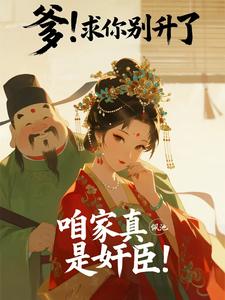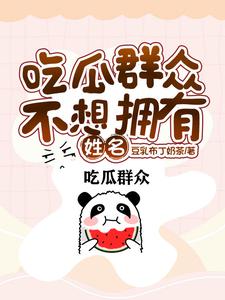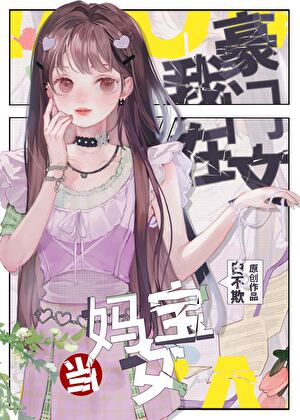While Shen Miao was still struggling under the blankets, Tang Er and Fu Xing had already gotten up to sweep the snow. Once finished, Tang Er came to the door and called out to her, "Wife, sleep well. I’ll prepare breakfast today."
Hearing this, Shen Miao immediately wanted to get up. Tang Er’s cooking skills could only be described as… survivable.
"Don’t worry, wife," Tang Er quickly added, aware of his limitations. "My late mother once taught me how to make a few Qizhou (Jinan) snacks. The radish-stuffed pancakes she made would ooze oil with every bite—absolutely fragrant! And her sweet foam, sticky and aromatic, was truly unmatched. Though mine won’t be as good as hers, these two dishes are at least passable. And if all else fails, there’s still Fu Xing. You can rest a little longer."
Fair enough. Shen Miao lay back down and dozed off again. She had drunk some rice wine the night before—not enough to intoxicate, but enough to leave her feeling sluggish. The faint sound of snow falling on the roof tiles outside, like silkworms nibbling on leaves, only made her drowsier.
Finally well-rested, she got up, dressed in thick cotton clothes and sheepskin-lined shoes, wrapped a scarf around her neck, and put on a fur hat. Just as she was about to step out to see what Tang Er had cooked, her eyes caught the "Cold Dispelling Chart" placed by the desk.
Most Cold Dispelling Charts featured nine characters, each with nine strokes, arranged into an elegant phrase—such as "Spring breeze fills the courtyard with the fragrance of cypress." These characters were written in hollow outlines, with each stroke representing a day. Starting from the winter solstice, one stroke was filled in daily. By the time all nine characters were completed, spring would have arrived.
For common folk, counting the "nines" was simpler: they’d ask a street scribe to draw a grid of nine rows and nine columns, with a circle in each cell—called "drawing coins." Once all eighty-one "coins" were filled, winter was over.
Ninth Brother’s Cold Dispelling Chart was far more refined. He had drawn nine plum branches, each bearing nine blossoms—one branch for each "nine," one flower for each day. Beside each branch, he had inscribed a line from Du Mu’s poetry: "Graceful reflections ripple in the stream, descending shyly from the jade terrace."
Strangely, the ink he used seemed to carry a faint plum blossom fragrance.
At first, Shen Miao hadn’t known how to fill in the chart. It was Ji Brother, familiar with scholarly customs, who explained, "Elder Sister, you’re supposed to color the blossoms based on the day’s weather. Red for sunny days, green for cloudy, white for snowy—something like that. Once all the blossoms are colored, the ‘Nine-Nine Cold Days’ will be over."
He even brought her a set of his own brushes and ink for the task.
Today marked the second blossom. Yesterday, the first day of winter, had been clear, so she had filled it in with vermilion. But since it was snowing today, she mixed a pale, watery shade of ink.
It felt like playing a coloring game. After carefully filling in the plum blossom, Shen Miao stretched and went out to wash up. The snow in the courtyard wasn’t deep—Fu Xing had already swept it aside to prevent it from turning into a muddy mess.
Yet everything else—the roof tiles, eaves, even the broken porcelain shards embedded in the walls—was dusted in white. Even the bamboo wind chime hanging under the eaves wore a tiny snow cap, looking rather adorable.
Snowfall brought a hushed stillness, as if the world had slipped into a sepia-toned photograph.
The small pond in the yard had frozen over in patches. Snowflakes landed on the water, melting instantly and sending out fleeting ripples. The resident frogs had likely burrowed into the muddy bottom, and even the hardy bitterlings had retreated into the depths of the water plants, barely moving.
Perhaps the sign by the pond should be updated: "Frogs hibernating—see you in spring."
As Shen Miao walked toward the kitchen, her eyes weren’t immediately drawn to Tang Er and Fu Xing bustling by the stove, but to Qilin perched atop the vegetable rack, crouched low.
Its tail swished back and forth as it fixed a predatory gaze on the cured meats and sausages hanging from iron hooks.
Shen Miao’s heart sank. Before she could shout, Qilin leaped, claws outstretched, and latched onto the nearest sausage. With a heave of its plump body, it snapped the straw rope holding the meat and landed triumphantly, dragging a sausage longer than itself across the floor before darting away.
"Thieving cat!" Shen Miao gaped.
"What thief?" Tang Er and Fu Xing turned around, bewildered. By then, Qilin had already scrambled onto the windowsill, vaulted onto the water vat, and then proudly retreated under the heated floor table like a victorious hunter.
Shen Miao rushed over to wrestle the sausage back.
Qilin refused to let go. It took a tug-of-war before Shen Miao finally reclaimed her prize.
Deprived of its spoils, Qilin trailed after her, meowing indignantly.
With a sigh, Shen Miao grabbed a knife, cut off the bitten portion, and tossed it to the cat. Shaking her head in despair, she muttered, "We only made so few… No guarding against thieves within the household!"
Tang Er chuckled. "No wonder it sneaked into the kitchen so early. I thought it was just cold outside, but it had its eyes on the sausages all along."
Fu Xing frowned. "Who let it into the kitchen?"
"It came through the window," Shen Miao said, having traced its path during the chase. Somehow, Qilin had learned to push open the window—which was propped up with a wooden stick from below.
"Impressive cat," Tang Er marveled. "Only been here a few days and already figured out how to open windows. That bulk isn’t just for show—pure strength!"
Fu Xing grinned, mixing radish filling as he defended Qilin. "It’s not the cat’s fault. The sausages you made are too fragrant. Even I drool just smelling them every day. How could a little one resist?"
Spoken like a true cat lover.
Shen Miao pursed her lips, silently resolving to weigh the window down with a rock.
After counting the remaining sausages—only one victim so far—she finally turned her attention to breakfast. "I’ve heard of sweet foam but never tried it." (And even that was from her past life.)
Despite its name, sweet foam was actually a savory porridge. Originally called "added bits," it referred to the practice of enriching millet porridge with extras like peanuts, red beans, spinach, and vermicelli for better flavor. Somehow, over time, the name morphed into "sweet foam."
The fire licked the bottom of the pot as the water inside bubbled. Tang Er had already prepared the millet paste and was slowly stirring it with a wooden ladle. Soon, the thick, glossy porridge released the comforting aroma of millet.
The peanuts and red beans in the earthen pot beside them had already boiled until they split open. Tang Er worked with intense focus, carefully pouring these ingredients into the batter. Next, he added soaked rice noodles and diced fried tofu, making the mixture in the pot even richer and thicker.
Then, he finely chopped ginger and scallions, heated another oil pan, and sautéed them until fragrant. The aromatic scallion oil was then poured into the previous pot, followed by washed and chopped spinach segments. A pinch of salt was sprinkled in, and after a gentle stir, the sweet porridge—tianmo—was complete.
Tang Er ladled the finished porridge into a clay pot to keep it warm, finally letting out a relieved sigh. He wiped the sweat from his brow with the towel around his neck. "Haven’t made this in a long time. Worked up a real sweat."
Meanwhile, Fu Xing had already prepared the radish filling for him. Shen Miao went over to take a look—the filling was simple. Green radish had been finely shredded, salted, and squeezed to remove excess water before being minced. It was then mixed with oil, salt, and five-spice powder by hand.
The dough was rolled into thin sheets, the filling spread evenly on top, and then the sheets were rolled up, edges sealed, and gently flattened before frying.
Fu Xing heated the oil, and Tang Er, looking nervous, carefully placed the stuffed pancakes into the pan. The oil immediately sizzled.
Holding a spatula, he flipped the pancakes occasionally while Shen Miao kept an eye on the heat. As soon as they turned golden on both sides, she called out, "That’s enough—any longer and they’ll burn."
Tang Er hurriedly scooped them out.
"So fragrant!" Sister Xiang, her hair loose, followed the scent and peeked in through the door.
Tang Er was instantly encouraged. "Smells good? It’s ready to eat!"
"Then I’ll go brush my teeth!" Sister Xiang quickly withdrew and ran off to wash up.
Shen Miao helped serve the sweet porridge. Steam rose from the thick millet batter, its aroma deep and comforting, mingled with the fragrance of red beans and peanuts. Just the smell made her stomach growl.
Once served, everyone else had woken up too, gathering around the heated table. A bite of the pancake, a sip of the porridge—it was truly satisfying. Though Tang Er’s skills were a bit rough—the porridge was slightly too salty, the red beans a tad undercooked—the overall taste was delicious.
The texture was wonderfully complex: the millet base soft and sticky, the red beans rich, the peanuts crispy, the noodles smooth, and the spinach tender. The hot bowl clung slightly to the lips, but a bite of the pancake balanced it perfectly. The outer layer was crispy and piping hot, while the radish filling was refreshingly sweet and juicy, sealed perfectly inside.
Crunch, slurp.
For a moment, the only sounds were chewing and sipping.
"Tang Er made this?" Tao, after finishing a bowl of porridge and two pancakes, couldn’t believe it.
Tang Er widened his eyes, pretending to be offended. "Why not me? Don’t like that tone, Tao."
Tao giggled. "Last time, you didn’t even cook the meat through, and your steamed eggs were worse than Brother Chuan’s. How am I supposed to believe you pulled off something this tricky?"
Cornered, Tang Er huffed and muttered, "What’s so hard about those? Just toss ‘em in and sprinkle salt. No need to make a fuss."
As she listened to their bickering, Shen Miao sipped her porridge and nodded inwardly. This food was genuinely good and quick to make—perfect for selling in the mornings. Her shop had mostly stopped serving breakfast lately. Once she was up, she had to prepare noodles, grilled fish, broths, toppings, braised meats, and side dishes—no time to spare.
Fu Xing, meanwhile, was tied up roasting ducks.
Tao rarely entered the kitchen, focusing instead on serving customers.
Tang Er, whose cooking and dough-kneading skills were lacking, mostly helped with chopping ingredients, slicing duck meat, and butchering livestock. When busy, he also assisted Tao with dishes, but that was the extent of his contributions.
Now that Tang Er had proven he could make these dishes well, it made sense to let him handle breakfast. The shop could offer two more morning options. Given that merchants from all over gathered in Bianjing—many from the north, as the south was already prosperous—these dishes would likely suit their tastes.
After finishing her bowl, Shen Miao made her decision. "Tang Er, starting tomorrow, you’ll make a pot of sweet porridge and fry twenty-some pancakes. We’ll test selling these for breakfast. If they do well, you’ll be in charge of them from now on."
Tang Er froze. "Me? In charge?"
Shen Miao nodded.
His face flushed with excitement, and he stood up to bow deeply. "I’ll do my best—won’t shame Shen Ji’s name."
Unlike Fu Xing, who had been entrusted with important tasks from the start, Tang Er had always envied him. Mastering roast duck meant mastering a lifelong skill. But apart from his knife work, Tang Er wasn’t as capable as Fu Xing, so he’d resigned himself to chopping vegetables and doing odd jobs, rarely daring to approach the stove.
Now, he could officially cook!
Tao, nibbling on a radish pancake, grinned. "This means more money for us."
Seeing Tang Er’s joy, Shen Miao felt relieved. After all this time, she’d come to understand him, Fu Xing, and Tao well. Fu Xing, with his skills, was secure—even if Shen Miao let him go, he could find work elsewhere with his wonton-making expertise.
Tao, young and on a yearly contract, was focused on saving money. By paying her based on commission, Shen Miao had secured her loyalty.
But Tang Er? After his father died and his stepmother left, he had no home to return to. His knife skills were his only asset, and he seemed adrift, unsure of his future. Everyone thinks about their path eventually—he couldn’t be a vegetable chopper forever.
Employee career planning mattered too. Shen Miao nodded to herself.
Just then, Aunt Li’s piercing voice cut through the chatter outside. "Big Sister, you up yet?" Her shout startled the plump sparrows sheltering under the eaves, sending them flying.
Shen Miao hurried to open the door. "Aunt Li, come in for some porridge."
"I’ve eaten," Aunt Li waved her off, eyes gleaming. "Let’s go—didn’t you want to see the duck pens outside the city? The snow’s almost stopped, so let’s hurry." Ever since Shen Miao mentioned hiring her as a "duck-raising consultant," she’d been too excited to sleep, pestering Shen Miao daily to inspect the newly purchased pond fields.
Aunt Li was skilled at raising poultry. Over the past year, while Aunt Gu’s chickens and ducks often fell ill and died, Aunt Li’s flocks thrived under her care.
Shen Miao had bought chickens and ducks from her many times—plump and well-fatted, their skin lined with golden fat that rendered into excellent oil.
"Come in and have a pie," Shen Miao pulled the woman inside, taking a stuffed pastry from the basket on the table and handing it to Aunt Li. "We're still waiting for Artisan He."
"When's that bricklayer surnamed He coming?" Aunt Li reluctantly took a bite of the pastry, only to find it surprisingly good—the radish filling inside was juicy and tender. She finished it in a few quick bites.
"He should be here soon. We agreed to meet around the same time," Shen Miao replied.
Aunt Li nodded, her gaze drifting unconsciously toward the chicken coop Shen Miao had built. The nest was stuffed with dry grass, and three chickens huddled inside. Aunt Li recognized them at once as the chicks she had sold to Shen Miao earlier. Turning her head, she asked, "Why haven't you slaughtered these chickens yet? If you keep raising them, they'll get too old. Just keep the best layer for eggs and hatching. That rooster doesn’t even crow, eats a lot, and has little meat—better to kill it."
Before Shen Miao could answer, Sister Xiang, sharp-eared, had already rushed to the coop with her pastry in hand, blocking Aunt Li’s view. Stamping her foot in agitation, she cried, "No, no, you can’t kill them! I raised Rongrong and the others painstakingly, feeding them grain by grain and worm by worm! They’re like my own children!"
Brother Chuan nearly choked on his sweet porridge.
Shen Miao laughed, her shoulders shaking. "Don’t worry, we won’t slaughter the chickens."
Only then did Sister Xiang reluctantly shuffle back to the table, glancing back every few steps before resuming her meal.
Aunt Li pursed her lips. She wanted to scold Sister Xiang—how could a grown girl be so childish, stopping people from slaughtering chickens? Chickens were raised either to sell or to eat, not to be worshipped like ancestors. Were they supposed to keep them forever?
But she swallowed her words in the end.
She still needed to stay on Shen Miao’s good side—best not to upset her.
Earlier, when Shen Miao had hired Aunt Gu to help out, Aunt Li had been green with envy. But she hadn’t dared to ask for the same opportunity, knowing she’d quarreled with Shen Miao multiple times before. Her sharp tongue had already cost her face—how could she shamelessly push herself forward? Though thick-skinned, even she had her limits.
So she had grumbled at home while watching from afar.
Fortunately, Shen Miao later started her roasted duck business and, putting past grievances aside, came to her for help. Aunt Li had sprung into action, using all her connections to source ducks and even hatching white duck eggs for her. Now, she had over a dozen ducklings at home and had proudly promised to raise them well—without even asking Shen Miao for feed money.
She was determined to earn Shen Miao’s favor.
From the doorstep of the Li family’s porcelain repair shop, she had a clear view of Shen’s Noodle Shop. Every day, she sat on a stool outside, cracking melon seeds and watching the bustling crowd inside Shen’s shop.
Especially the roasted duck—it sold like hotcakes.
Aunt Li, ever the gossip with sharp ears and sharper eyes, was convinced that Shen Miao was on the fast track to success.
Most eateries could thrive for decades, even centuries, with just one signature dish—like that famous braised chicken from Dezhou, its ancestral broth passed down through generations, ensuring prosperity.
But Shen Miao already had multiple signature dishes!
At first, when Shen Miao had made a fortune from that Xie family, Aunt Li had been jealous, whispering behind her back. But within months, Shen Miao had expanded her shop, bought land, and was regularly hired by nobles to cater banquets. Aunt Li had shut her mouth. Why? Because the gap between them had grown too vast—now, she could only scramble to curry favor, not dare to offend.
As she chewed on the radish pastry, her mind raced with schemes.
Shen Miao stepped into the kitchen, instructing Tang Er and Fu Xing to prepare the ingredients for tonight’s iron-pot braised goose. Just then, the sound of a cart arrived outside—Artisan He had arrived with his mule-drawn carriage.
"I’ll be off then. The shop’s in your hands," Shen Miao said hurriedly, slinging her small bag over her shoulder and wrapping a scarf around her neck. After bidding Tao and the others farewell, she climbed onto the cart and departed.
The ten acres of land she’d bought from the government were about an hour’s ride from the inner city. Seated in Artisan He’s cart, the three of them began discussing plans—mostly Aunt Li, who had firsthand experience raising ducklings and shared her insights.
"The Jinling white ducks you want to raise, Miss Shen, love water and stick together in flocks. They eat a lot, grow fast, and spend most of their time either in the water or dozing in their nests—not as active as mallards. The only tricky part is the ducklings—they’re more delicate than mallards and can’t handle the cold. As soon as I hatched them, I moved them indoors."
Shen Miao listened attentively.
It was true. These white ducks, not yet crossbred with Peking ducks, were pure southern waterfowl. While adults had thick feathers for warmth, the ducklings, with their weak resistance and sparse down, naturally feared the cold.
She’d have to experiment with crossbreeding northern and southern ducks later.
When they arrived, standing at the edge of the field, all they could see were wheat ridges hidden beneath winter snow, merging seamlessly with the horizon. Aunt Li’s eyes widened, her tongue stumbling in excitement. "Such a vast stretch! You could raise thousands here!"
"Once we start, I’ll have to trouble you to come out here daily to keep an eye on things," Shen Miao said with a smile. "I’ll hire a few hands to stay here, but I’d still feel better with an experienced duck-raiser like you overseeing them."
"Don’t you worry! I may not boast about much, but when it comes to ducks, I’ve got a wealth of knowledge!" Aunt Li couldn’t tear her eyes away from the snow-dusted fields. The wind tousled her hair as she murmured, "Such fine land, already sown with wheat—all yours, Miss Shen? How much silver did this cost?"
Shen Miao didn’t hear her. Gazing at the snow-blanketed wheat fields, she recalled a saying from her past life: "A winter quilt of snow means a pillow of buns next year." The snow would nourish the soil, killing pests and ensuring a bountiful harvest come spring.
For now, she wouldn’t disturb the wheat fields. The duck sheds would first be built on the sandy, uncultivated land near the pond—a "Phase One" project housing around two hundred ducks as a trial.
The wheat fields would be reconsidered after next year’s harvest. The Feng Family’s tenants had clearly tended them well—the crops were thriving. It’d be a waste to uproot them.
Braving the light snow, they circled the fields. The duck sheds needed to be on slightly elevated, dry ground, avoiding low-lying damp areas to prevent disease during heavy rains.
They also had to be close to the pond, where reeds and bulrushes grew—ideal for ducks to forage insects and grass.
"For the sheds, bamboo or wood beams with brick walls are best, topped with thatch or tiles for sturdiness," Aunt Li advised. "Separate sheds for ducklings and adults. The duckling shed should have a heated kang bed with thick dry grass. If any hatch in winter, a few days of firewood and charcoal will toughen them up enough to survive."
Shen Miao nodded in agreement—it made sense. When building something from scratch, it was best to cover all bases to avoid panic in case of unexpected issues. Even if the heated brick beds and flues increased costs, they were reasonable expenses.
"Baby ducks must be kept warm, while the duck shed for mature ducks should be more spacious, with drainage ditches dug and small ventilation windows built high up. A few perches should also be erected a few feet above the ground—ducks prefer to rest standing up, and it helps keep them dry and free from dampness."
Aunt Li indeed spoke about ducks with great expertise. She proudly added, "Back when I was sourcing ducks for Eldest Sister’s roast duck, I visited nearly every duck shed in the outer city. Some households had sickly ducks simply because their sheds weren’t built properly. After seeing so many, I can now tell what’s good and what’s not."
The plans were quickly finalized, and the requirements for the duck shed—its size and other details—were settled with Artisan He. A perimeter wall would also be built around the area, tall enough to prevent the ducks from flying out. Additionally, a separate feed storage shed was needed, raised slightly off the ground with wooden planks to prevent moisture. A staff dormitory would also be constructed nearby since the duck farm required round-the-clock supervision.
The total cost was substantial, but Shen Miao refused to cut corners. She agreed with Artisan He on a lump sum of a hundred strings of cash, with the understanding that any additional expenses would be discussed later. The key was to ensure everything was done properly.
Shen Miao was decisive by nature—if something was worth building, it should be done right the first time to avoid costly revisions later.
The construction timeline was set, but with the Lunar New Year approaching, Artisan He explained that he and his apprentices would do as much as possible before the holiday. Any unfinished work would have to wait until after the eighth day of the first lunar month.
That wasn’t a problem—Shen Miao hadn’t even secured the ducklings yet.
While Shen Miao was busy planning the duck farm in the outskirts, Yue Teng trudged through the snow, slowly making his way out of Wang’s Inn and heading once more toward Shen’s Noodle Shop.
The snow fell like dust, soon coating his eyebrows and beard with glistening flakes. But Yue Teng didn’t bother with an umbrella—to him, this light snowfall barely counted as snow compared to the winters in Yanzhou.
Crossing the Golden Beam Bridge, he spotted Shen’s shop open in the distance and let out a small sigh of relief, quickening his pace as he stepped inside.
The snow had kept most pedestrians indoors, leaving only three or four tables occupied, all with customers hunched over their steaming bowls of noodles, slurping contentedly.
The moment Yue Teng entered, warmth enveloped him, along with the rich, savory aroma of noodle soup. He bent slightly to brush the snow off his robe, then glanced around. The shop was impeccably clean, its walls adorned with calligraphy, paintings, and menus. The cozy, fragrant atmosphere made him relax almost instantly.
A young woman with phoenix eyes, about fifteen or sixteen, was attending to the customers. Spotting him, she quickly wiped her hands and greeted him with a bright smile. "Good day, sir! What would you like to eat? We have mutton soup, instant noodles, fried sauce noodles, chicken wontons..."
Yue Teng shook his head. "Could I trouble you to ask Madam Shen to prepare a bowl of fish head and tofu soup?"
The young woman’s expression turned apologetic. "Ah, I’m afraid Madam Shen isn’t here—she left early this morning for the outskirts. Right now, we only have the ready-made dishes listed."
Yue Teng: "..."
Seeing his disappointment and sensing he might leave, the young woman quickly added, "Are you a merchant who’s been away from the capital for a long time? You must be from the north—I can tell! Have you tried our instant noodles yet? No? Then you really should! We have chicken broth, braised pork, and Old Lady Pickled Cabbage flavors. You wouldn’t believe it, but these noodles are even sold at the Youzhou border now! They’re all the rage—even the soldiers love them!"
Youzhou? So Xi Feijing had been up to something again... Yue Teng’s eyes flickered slightly. He obliged, choosing a table and sitting down. After a moment’s hesitation, he finally pointed at one option. "Alright, I’ll try the... Old Lady Pickled Cabbage one."
What a strange name. Did some old woman make particularly good pickled cabbage, and that’s how it got its name?
"Coming right up!" The young woman, delighted to have kept a customer, flitted into the kitchen like a sparrow. "Fu Xing! Bring out the instant noodles and a pot of hot water—Old Lady Pickled Cabbage flavor!"
"What Old Lady Pickled Cabbage? How many times has Madam told you? It’s called Aged Fermented Pickle!" came a voice from the kitchen.
Yue Teng: "..."







